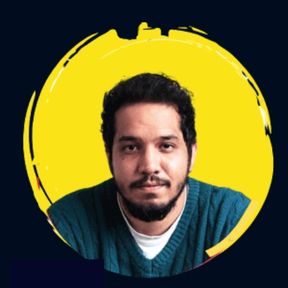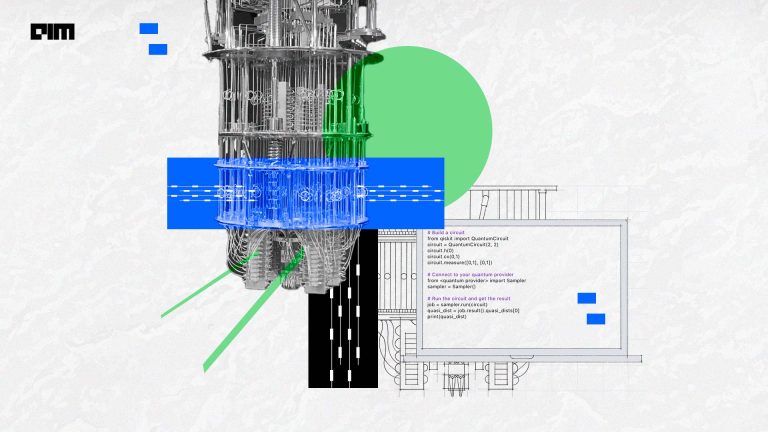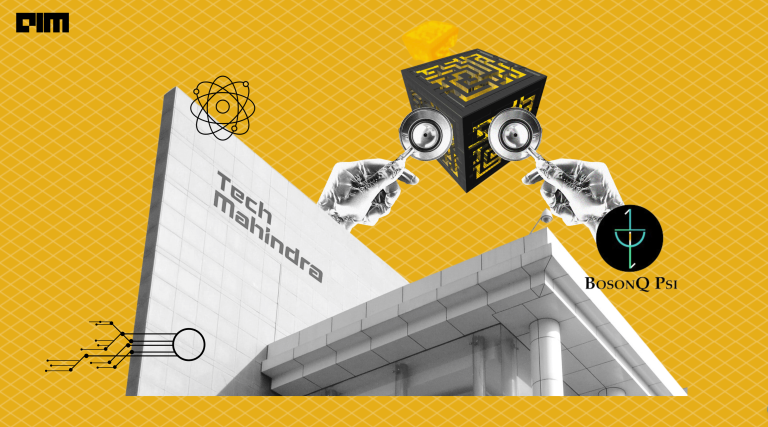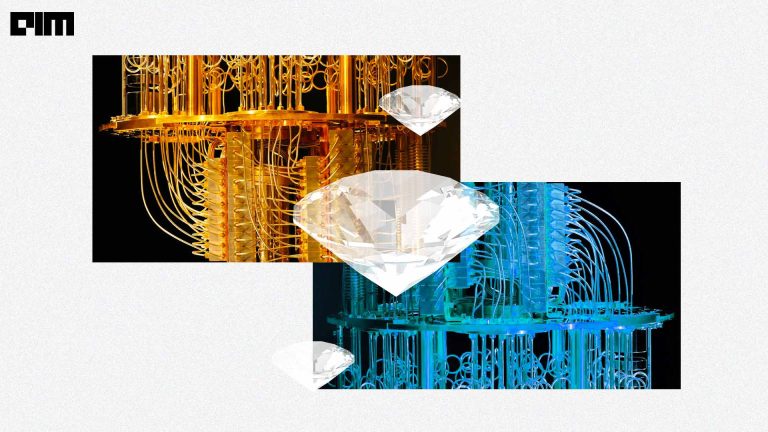|
Listen to this story
|
On Tuesday, April 18, 2022, the Indian government signed a joint declaration with Finland to establish a virtual network centre on quantum computing. A day later, the delegates from both the countries gathered to discuss the possible areas of cooperation and a clearcut roadmap of collaboration to take India to a global arena in quantum computing.
This included the Department of Science and Technology (DST)’s heads S Chandrasekhar, Akhilesh Gupta, SK Varshney, KR Murali Mohan, Rajiv Kumar, JBV Reddy and Sibashisa Dash; IIT Madras professors Anil Prabhakar and Arul Lakshminarayan; TIFR’s R Vijayraghvan; IISER’s Umakant Rapol; C-DAC’s heads N Subramanian, Amit Saxena, Anindita Banerjee; and other representatives from the Ministry of External Affairs (MEA) and DST.
From the Finnish side, the delegates included Ministry of Economic Affairs and Employment leaders Petri Peltonen and Riiikka Astala; Embassy of Finland Counsellor for Education and Science Mika Tirronen; Business Finland heads Jukka Holappa, Jusa Susia, and Aasheesh Chudasama; Aalto University professor Vikas Garg; Bluefors Oy CTO David Gunnarson; IQM Quantum Computers’ COO Juha Vartiainen; QuantrolOx’s Vishal Chatrath; Vexlum Oy CSO Mircea Guina; YaiYai’s Tamar Pichkhadze; VTT’s Himadri Majumdar; and others.
Indo-Finnish virtual centres
“We would love to have a physical centre, but we think virtual centres are not a bad beginning,” said S Chandrasekhar, secretary, Department of Science and Technology (DST), at the roundtable discussion held at DST’s Aryabhatta Research Institute of Observational Sciences (AREIS) located in New Delhi.
Highlighting India’s quantum tech mission announced in 2019, he touched upon various initiatives, workshops, and projects taken up by the government to push quantum technology in the country both at the academic and industry level.
Through this collaboration, Chandrasekhar looks forward to exchanging ideas, experiences, and learnings between both countries. “Our national mission on quantum technologies aims to develop large scale quantum computers,” he added.
Vision for setting up Finland-India virtual quantum centre (Source: DST)
“India is a strong believer in collaborations rather than competition. So, we don’t want to compete with anyone. Instead, we would like to collaborate and bring synergies together to reach our endpoint as quickly as possible,” said Chandrasekhar. Prior to this meeting, DST has also had discussions with Indian partners, including Google, IBM, etc., to understand the quantum tech ecosystem by and large.
“I do believe that quantum is yet another tool we are going to have in our hand, which we will use on the betterment of humankind on this planet, rather than using it for destructions or hacking computers,” said Chandrasekhar, saying that a lot of people have this notion that quantum is so smart that they can hack anything and everything on this planet. “We will use these new technologies for the betterment of the planet,” he affirmed.
“I am sure this is just the beginning. We have a long way to make sure that we leave this planet to our next generation in better shape,” said Chandrasekhar, feeling optimistic about the partnership with Finland and India on quantum technology.
Commenting on the partnership, Petri Peltonen, under-secretary of state, Ministry of Economic Affairs and Employment, said that Finland has one of the world-class facilities for quantum computing, backed by government, universities and research institutes. He said that the country currently has five qubit small scale quantum computers up and running, fueled by IQM. IQM is one of the leading European quantum hardware companies in superconducting circuits.
“Obviously, in the next two-three years, we are looking at having 50 qubit size quantum computers,” said Peltonen proudly.
Citing Bluefors Oy, Peltonen said that Finland is also a pioneer in low-temperature research, and cryogenics is definitely an area of interest. Bluefors delivers systems for cutting-edge research fields such as quantum computing and nanotechnology.
In addition to this, he also said that Finland has the best resources to provide software solutions for quantum computers. Citing Nokia, Peltonen lauded India’s IT ecosystem on how it has scaled to a global level. Nokia is a Finnish multinational telecommunication, IT and consumer electronics company.
Further, he said that both Finland and India could leverage their scientific ecosystem and strong IT communities to strengthen them further to facilitate spin-offs.
AIM caught up with Finnish delegates at IISc, Bengaluru. Here’s a quick snippet of what they think of India and their expectations from the partnership with the Indian research community, institutions, and businesses on quantum computing.
Putting India on the global map
KR Murali Mohan, the adviser at DST, said that India has its prowess in digital or classical technologies, algorithms, and technical software, which it has built-in for more than a decade. He said that quantum technologies would change the entire landscape, in terms of computing, applications, sensors, and other devices, across industries, including fintech, agriculture, healthcare, etc.
“So, what we are lacking is the domain expertise in hardware. We have expertise in software aspects,” he added, saying that the country is working towards strengthening its quantum computing capabilities. He said that the government has created a small network of researchers – the quantum enabled science and technology research groups aka QUEST programme.
Further, he said it has also created a technology innovation centre called I-Hub quantum technology foundation (QTF) at IISER Pune, translating research work into tangible products.
“To scale up the entire activities, we plan to launch a national mission on quantum technology and application, which is at an advanced stage,” he added, revealing that it would be launched in a couple of months. He said that he is looking forward to Indo-Finnish collaboration on quantum tech, particularly in research, product development, and marketing.
For instance, at the institutional level, IIT Madras said that it has done several works in silicon photonics and nonlinear optics and developed algorithms on the cloud in collaboration with companies like IBM and Honeywell. “We are using their computers today,” said Anil Prabhakar, professor at IIT Madras.
Further, he said that the university also works in quantum mining, information theory, diamond photonics, etc. “We do want to scale it beyond this one computer – we also want to connect things together, and a lot of that work, we are hoping will happen on diamond photons,” he added, pointing at its centre for quantum information, communication, and computing, and researchers who are working on these projects.
“One of the earliest users of quantum computers is our faculty from chemistry, who are simulating molecules and hoping to do new things like optimising chemistry for batteries so that it fits into the sustainability angle,” shared Prabhakar. He further shared that their researchers work on quantum optics, quantum algorithms, and quantum simulation.
Quoting one of his colleagues, G. Venkataratnam, who specialises in low-temperature physics, Prabhakar said, “If you are engaging with Finland, you do not have to worry about the leaks.”
Further, he said they are using atomic systems, ionic systems, NV centres, and MMR systems to develop various platforms through quantum technologies, including quantum simulators using neutral atoms, alongside building ion-trap quantum computers and more.
He also said that a few of his colleagues are working on various aspects of quantum communication processes like entanglements and theoretical aspects related to quantum technology. He also showed how quantum technology is used in studying molecules, alongside developing a few products like atomic blocks and sensors.
“At Tata Institute of Fundamental Research (TIFR), we are working around superconducting qubits,” said Vijayraghvan. He said that theirs is the first lab in India to start research in this area. He also said that they are part of the QUEST programme, where they have collaborated with the Defence Research and Development Organisation (DRDO) and TCS to build 7 qubit processors.
Besides superconducting qubits, Vijaraghvan said that there are also efforts towards developing diamond NV centres and quantum key distribution (QKD) work, alongside expertise in quantum algorithms, trapped ion physics and others.
Highlighting Param Siddhi, Amit Saxena, joint director of C-DAC, Pune, said that they are planning to develop quantum absolute, where they can have the hybrid quantum approach for drug designing and chemistry purposes to design new molecules. Param Siddhi is a high-performance computing-artificial intelligence (HPC-AI) and the fastest supercomputer developed in India.
Further, he said that India has also developed one of the quantum simulators called QSim, which can be deployed on the supercomputer. “That can give a platform where we can execute algorithms more efficiently,” he added.
Saxena said that the quantum simulator is a quantum tubular system, which can give cloud access – a hybrid approach – that can also be accessed to the cloud-based architecture. “QSim is already available on the cloud; we are already providing it,” he said, stating that this supercomputer (Param Siddhi) at the backend can give the advantage of more number of qubits, more efficiency, and more speed. He said that this is available both on the cloud as well as on edge (can be stored in labs). QSim has been developed in partnership with IIT Roorkee and IISc Bengaluru.
Meanwhile, IIT Bombay also has a centre of excellence in quantum information and computational science and technology. The researchers are working on quantum computation, communication, materials and sensors. Raman Research Institute, Bengaluru, has also set up the quantum information and computing (QuIC) lab, one of India’s first labs to manufacture and establish the usage of heralded and entangled photon sources for various applications in quantum technologies.
Fueling India’s quantum research
Mika Tirronen, counsellor of education and science for the Embassy of Finland, said that the country has strong academic expertise in quantum computing, alongside award-winning infrastructure, citing VTT Technical Research Centre of Finland and CSI’s Quantum Computing Group (QCG). QCG is part of Brookhaven Lab’s wider quantum initiative that addresses quantum information science research challenges, ranging from novel algorithms and materials for the next generation of quantum computers to new quantum devices and sensors.
He said the quantum ecosystem embraces the Nordic spirit of perseverance. “We would not have this ecosystem without the support from academic researchers, universities, public (Business Finland) and hardware companies,” he added.
“We have most of the spin-offs from the foreign universities. Many tech leaders actually have two hats; they are professors, and at the same time, establishing companies,” said Tirronen, saying that this is part of their national thinking, where they really want to support spin-offs and utilise the resource effectively.
He also said that they have one of the largest quantum industries in the world. “Very strong, one of the leaders in the European region,” he added.
Commenting on the partnership with India, he said that they are looking at growing in training, research advancements, and commercial applications like quantum algorithms, hardware devices, quantum architectures, etc.
Also read: India inches towards quantum supremacy, ropes in Finland
What’s next?
“The idea is to transition from a virtual centre of excellence to an actual centre of excellence over two phases,” said SK Varshney, adviser and head, international cooperation at DST. The below image captures India’s plans for setting up quantum computing capabilities in the country.
“We fundamentally agreed to collaborate, and there are a lot of strengths on both sides, where we can match and create – particularly I am fascinated by the Nordic spirit, where the Indian spirit also needs to be matched,” said Varshney.
Further, he said that when you look at the board collaboration, it should be either product or research-driven. “The research ultimately has to feed input to the product development,” he added. For this to happen, he suggested that there needs to be a clear cut timeline, both short term (six months) as well as long term (two years), alongside roles and responsibilities properly defined.
To kickstart the partnership, the focus area for India includes free space communication (or satellite communication), alongside developing quantum simulators, parametric amplifiers, cryogenic electronics, etc. “Once we have defined these products, the timeline, I think the funding will emerge automatically,” said Varshney. However, he said that there are a lot of commercial products that India can still catch on to, and we are trying to see if we can develop these products before China or IBM puts them on the market.
Lastly, Chandrasekhar emphasised that both countries need to chalk out the strengths and weaknesses in this area and work together to overcome them. Further, he asked the delegates to start a core member group with (say, three members) who would oversee the developments of this partnership every quarter.




















































































